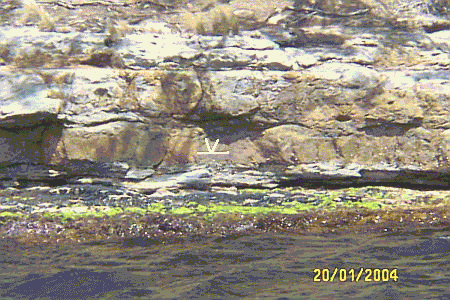Apologies, I missed this - real life is in the way.
Quote:
Originally Posted by dcb

Arragonis, I misspoke on the northwest passage, you are correct that it has been open, but perhaps not reliably.
|
And last week there were loads of russian
ships trapped in the ice, albeit not quite in the same place.
Quote:
An operation to rescue vessels, stuck in ice in the Sea of Okhotsk, off Russia's Far Eastern coast, is hampered by poor weather conditions, the Far East Shipping Company said on Friday.
Three ships have been trapped since Friday in ice up two meters thick. Two more ships became stuck on Monday but were freed two days later.
|
Quote:
Originally Posted by dcb

Let me get an assessment of where you are coming from here.
Are you saying that:
you do not think the north pole is getting smaller/warmer on average?
the sea level is not rising at about .3cm /year?
the average global temperature is not increasing?
I appreciate that you have read much about it, but it still seems like a pretty big gamble.
|
To take each one
1. Yes it has reduced since we have been watching it closely - which is since the early 1990s. At the same time the antarctic has been growing. Overall global ice levels have remained the same.
In 2007 when the arctic reached its record summer low, the antarctic reached a record high. Reconstructions (caveat below) suggest the ice levels have been lower and higher over the longer term. Polar Bears lived through those periods BTW and are thriving now.
2. Sea level rise from what I have read is about 12 inches a century, although it has actually slowed down in more recent years. It has been rising about 8 inches a century for thousands of years. This photo shows a sea level marker made in 1841 - the sea level in 2004 when this was taken was not significantly higher.

3. Historically temps have risen about 1.6 Deg C a century since we started monitoring them. The 'models' used to predict the consequences assume that the rise will accelerate to 3.4 DegC a century but nobody seems to be able to explain why. The rise in temps in recent years has slowed to under 1 Deg C a century. It may rise or fall.
My previous post on natural cycles seems to suggest we can't reliably detect a forcing by AGW vs natural, short term variation.
I also posted how the Met office had anounced (quietly of course) that 2010 was the 12th coldest on record, despite the same weather event which caused both the Pakistan floods AND the moscow heat waves.
We also have to take into account the adjustments and changes that NASA GISS, CRU and others make to their datasets. Overwhelmingly these have the effect of reducing temps from older records which make the rises look more dramatic. There may be valid reasons but not all adjustments are explained or justified as well as they could be.
An error with these stats was also uncovered a few years ago which kind of killed the idea that 1998 was the hottest year on record,
it turned out to be 1934. The guy who spotted the error is
not a climate scientist by the way, just someone who is an expert in big sums.
If you want me to explain my overall position, its simple.
We just don't know enough to make any conclusions, except that we just don't know. The predictions of 10-15 years ago read like bad jokes - pretty much completely wrong mainly because predicting the climate like predicting the weather is beyond our knowledge and capability.
What I object to is madness
like this.
Quote:
Me: What happens to a very fat family, a very irresponsibly fat family, and they've blown their carbon budget to the scheissenhausen and you've made their food terribly expensive? What about the kids? They go to breakfast and they've got one baked bean?
Egger: In general you'll find that in a very fat family they are low-income earners ... so those people would actually benefit from a scheme like this because the food that they buy, the energy that they use, they don't use as much energy as the rich anyway ...
Me: But what happens? Their ration of carbon credits runs out and you've made food too expensive for them to buy. What happens to them?
Egger: Again, they get money back from doing the right thing.
Me: No, but they've done the wrong thing. That's why they are fat and poor. They've done the wrong thing, they've run out of their carbon credits. What are you going to do to them then, when the food's too expensive to buy?
Egger: There are going to be personal cases like this that need to be worked out and they need to be worked out in the tax system as well as in the carbon credits system.
|
This is possibly your future by the way, and they are planning not to bother asking us voters if we want it or not...